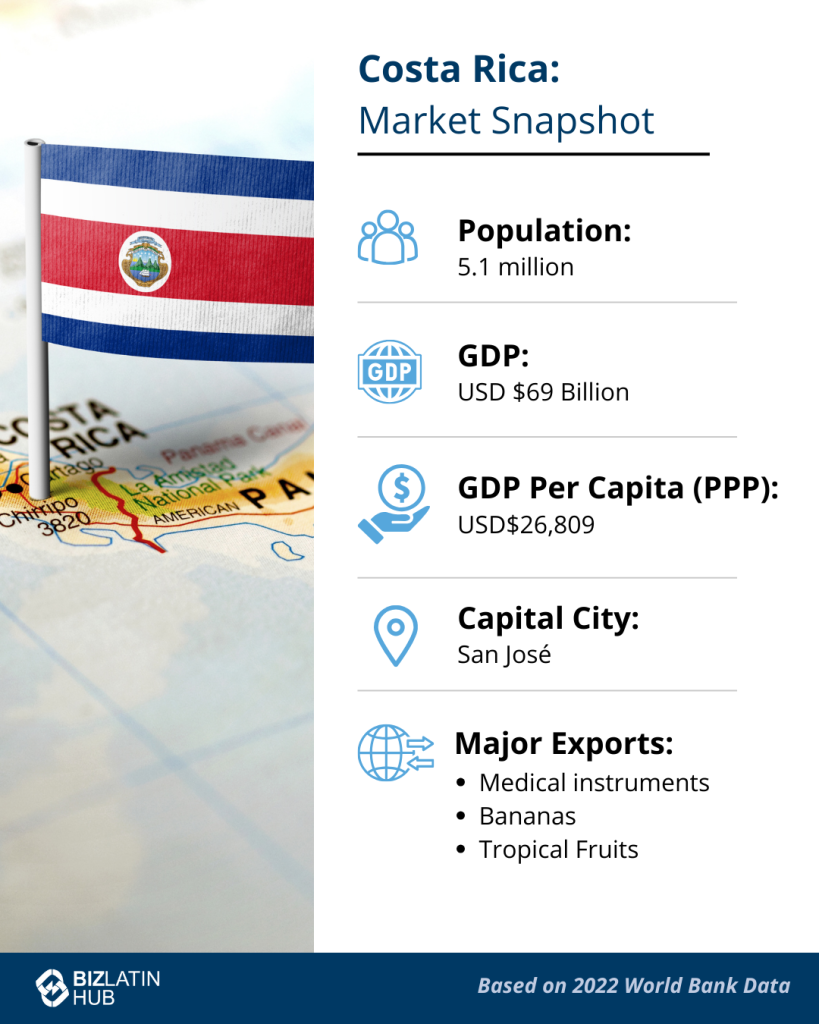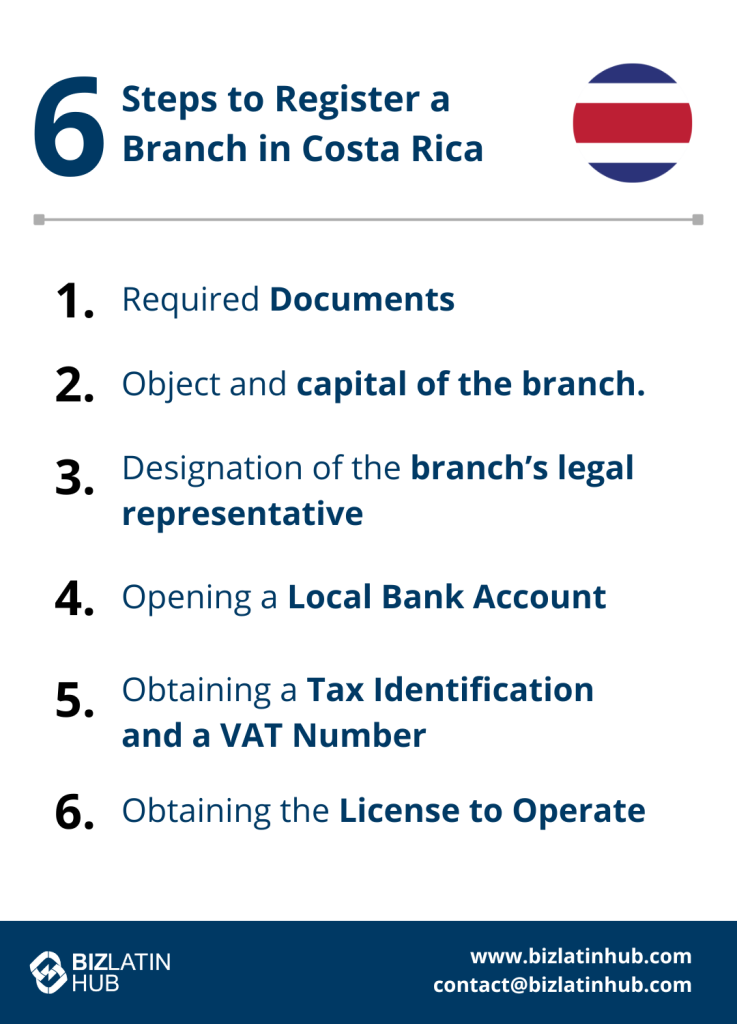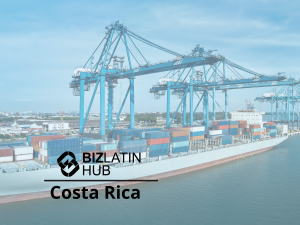
If your company wants to register a branch in Costa Rica, the company will gain access to a wealth of opportunities in a market for growth and innovation. The region is exciting and dynamic, with many Latam business opportunities available for forward-facing investors.
Costa Rica is a business-friendly country, with a strong economy and an environment conducive to growth. With a highly skilled workforce and widespread English proficiency among adults, the country offers an ideal environment for companies wishing to register a branch in Costa Rica. There is also a growing network of Free Trade Zones.
For those already operating in other countries, the option to register a branch in Costa Rica provides a fast track to expansion. This will allow you to take advantage of the country’s favorable business climate and established operational frameworks.
What is a branch in Costa Rica?
A branch is a part of a company that is registered in a different area to the head office. This may be within the same country or elsewhere. They operate under the same policies and execute the same activities as the head office.
The main difference between a branch of a company and a local subsidiary company is that a branch is not legally responsible and may have less autonomy over financial management. These powers normally reside with the main headquarters of the company.
Due to the substantial bureaucracy involved in dealing with public institutions, who often show reluctance to working with branches, it is worth considering the complexity of the process before deciding to register a branch in Costa Rica. The following part of this article will outline the said procedure.
6 Steps to Register a Branch in Costa Rica

Whilst registering a new company in Costa Rica can be achieved quite easily, there are many more documents of proof that you must provide in order to open a branch of a foreign company. As listed by Costa Rica’s National Registry, the required steps to register a Branch in Costa Rica are as follows:
- Step 1 – An indication of the parent company’s legal representative, company address, name, capital, duration, and administrators.
- Step 2 – Object and capital of the branch.
- Step 3 – Designation of the branch’s legal representative with their faculties.
- Step 4 –Opening a local bank account: It is mandatory to have a local bank account in Costa Rica.
- Step 5 – Obtaining a tax identification and a VAT number: These are necessary for tax purposes.
- Step 6 – Obtaining the license to operate: This is the final step before the branch can start operations.
FAQ About Costa Rica
Based on our experiences, these are the most common questions that clients ask us:
1. Can a foreign company open a branch in Costa Rica?
Yes, foreign companies can register branches in Costa Rica by following the designated registration procedure and fulfilling regulatory requirements. The primary activity of the branch is limited to distributing products manufactured by the foreign entity, i.e., the parent company.
2. How long does it take to complete the process?
Once all the required documentation is submitted in Costa Rica, reviewed, and presented to the National Registry, the process of registering a branch can typically be completed within 2 weeks.
3. What are the advantages of operating in Costa Rica?
Once incorporated in Costa Rica, the branch is issued a legal identification number, enabling it to issue invoices to clients and conduct legal and operational procedures in both public and private institutions. Registering a branch in Costa Rica provides advantages such as access to skilled labor, favorable tax incentives, strategic location, and political stability.
4. Is there a minimum capital requirement?
No, Costa Rica does not enforce a minimum capital requirement for registering a branch. However, it’s crucial to ensure sufficient capitalization to support business operations and fulfill financial obligations.
5. Can I operate multiple branches in Costa Rica?
No, a sole foreign company cannot register multiple branches in Costa Rica. Each foreign company can register only one branch.
Need Help to Register a Branch in Costa Rica?
Opening a branch of a foreign company in Costa Rica can present some issues. However, the Biz Latin Hub team can help you. We are experts in global law with a local perspective and our group of local specialists can help you with any queries you may have.
Our portfolio of services includes hiring & PEO, accounting & taxation, company formation, and corporate legal services. We have offices in San José as well as over a dozen other major cities in the region, as well as trusted partners in many other markets.
Contact us today to find out more about how we can assist your company to register a branch in Costa Rica, or otherwise do business in Latin America and the Caribbean.
Check out this video to learn more about the market-entry services we provide to support our clients looking to establish an office in Latin America.






